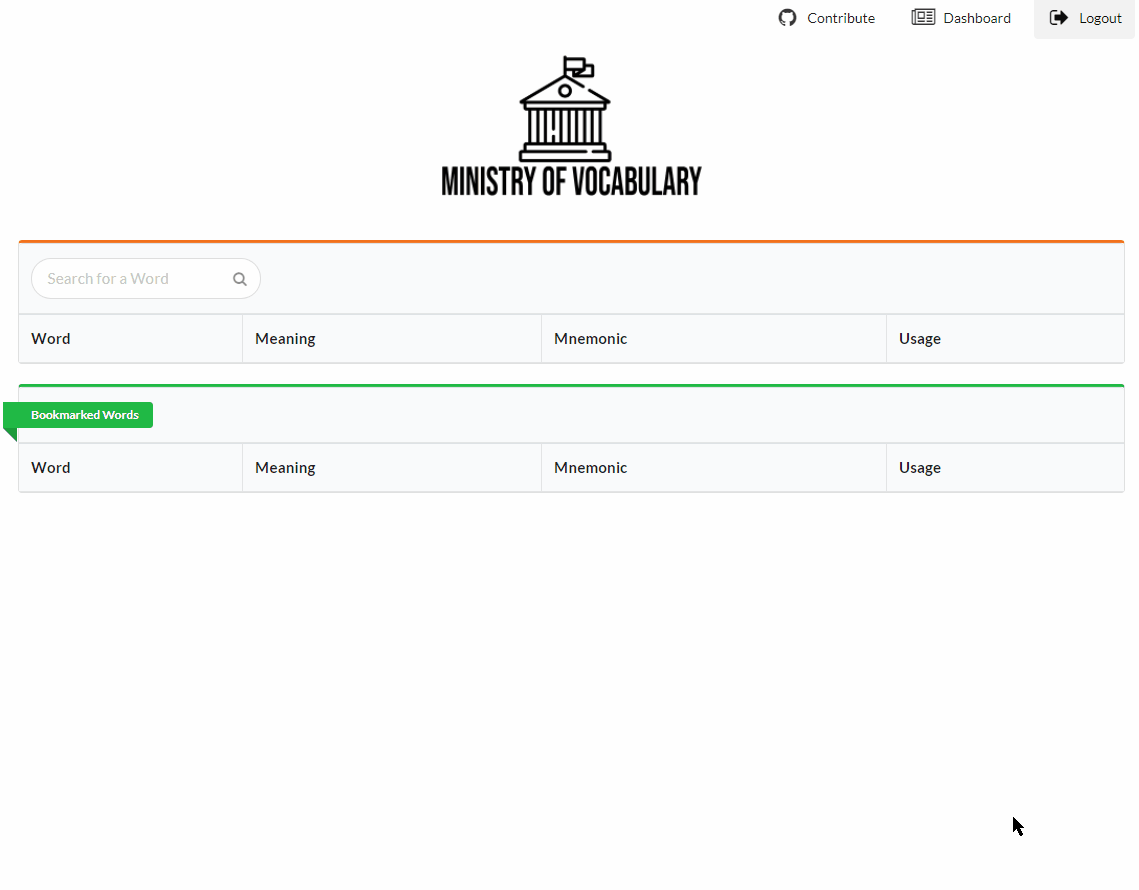codename Ministry Of Vocabulary
A MERN Stack app which helps you learn new words, improve your vocabulary and explore mnemonics.
- NoSQL Database with around 40,000 records of words with meaning, mnemonics, usage and more. Used MongoDB Atlas to host the same.
- Simple CRUD operations
- Node.js/Express.
- React.js powered by Semantic UI.
- Redux for State Management.
- User Authentication with JWT.
- Improved and Secure API calls.
- Deboucing API calls during typing, thus unnecessary backend calls are significatly reduced.
- Production deployment(API + Front End) through
mainbranch. - Front End only deployment on
gh-releasebranch through GitHub Actions to build and deploy ongh-pages. - Adding more words, meaning and mneomonics.
- Improvment in UI 💅
git clone git@github.com:lameguest21/ministry-of-vocabulary.git
cd ministry-of-vocabulary
npm i
cd client
npm i
cd ..
npm start
create-react-app configures a Webpack development server to run on localhost:3000. This development server will bundle all static assets located under client/src/. All requests to localhost:3000 will serve client/index.html which will include Webpack's bundle.js.
To prevent any issues with CORS, the user's browser will communicate exclusively with the Webpack development server.
Inside Client.js, we use Fetch to make a request to the API:
// Inside Client.js
return fetch(`/api/word?q=${query}`, {
// ...
})This request is made to localhost:3000, the Webpack dev server. Webpack will infer that this request is actually intended for our API server. We specify in package.json that we would like Webpack to proxy API requests to localhost:3001:
// Inside client/package.json
"proxy": "http://localhost:3001/",This handy features is provided for us by create-react-app.
Therefore, the user's browser makes a request to Webpack at localhost:3000 which then proxies the request to our API server at localhost:3001:
This setup provides two advantages:
- If the user's browser tried to request
localhost:3001directly, we'd run into issues with CORS. - The API URL in development matches that in production. You don't have to do something like this:
// Example API base URL determination in Client.js
const apiBaseUrl = process.env.NODE_ENV === 'development' ? 'localhost:3001' : '/'This setup uses concurrently for process management. Executing npm start instructs concurrently to boot both the Webpack dev server and the API server. The react-scripts are started in /client folder with the above command and nodemon starts the API server in dev mode thus enabling hot reloading with the exception of /client folder under watchlist which is ignored by nodemon.
Thanks to Anthony Accomazzo . This project uses code from food-lookup-demo.

